PPT-The History of Programming Languages
Author : pasty-toler | Published Date : 2018-02-25
CS 170b Benjamin Gaska much help from William Mitchell What is a programming language A simple definition A system for describing computation It is generally agreed
Presentation Embed Code
Download Presentation
Download Presentation The PPT/PDF document "The History of Programming Languages" is the property of its rightful owner. Permission is granted to download and print the materials on this website for personal, non-commercial use only, and to display it on your personal computer provided you do not modify the materials and that you retain all copyright notices contained in the materials. By downloading content from our website, you accept the terms of this agreement.
The History of Programming Languages: Transcript
Download Rules Of Document
"The History of Programming Languages"The content belongs to its owner. You may download and print it for personal use, without modification, and keep all copyright notices. By downloading, you agree to these terms.
Related Documents

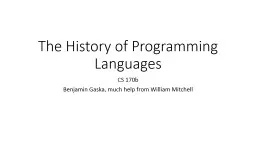

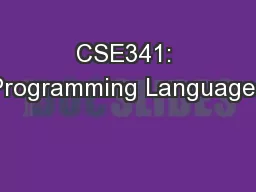
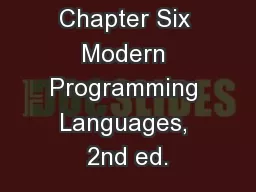
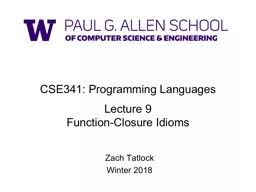

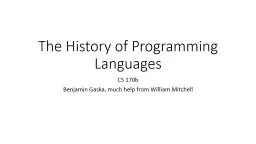
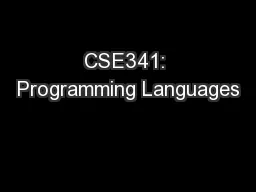
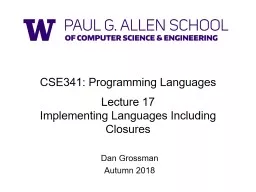
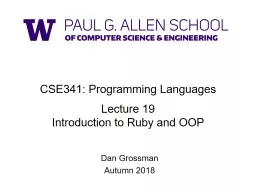
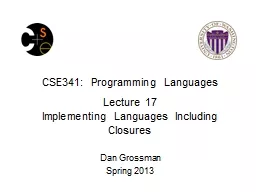
![[eBOOK]-Programming 19:C Programming Professional Made Easy & Excel Shortcuts (Excel Programming,](https://thumbs.docslides.com/980131/ebook-programming-19-c-programming-professional-made-easy-excel-shortcuts-excel-programming-microsoft-excel-python-for-beginners-c-programming-c-programming-languages-android-c-programming.jpg)